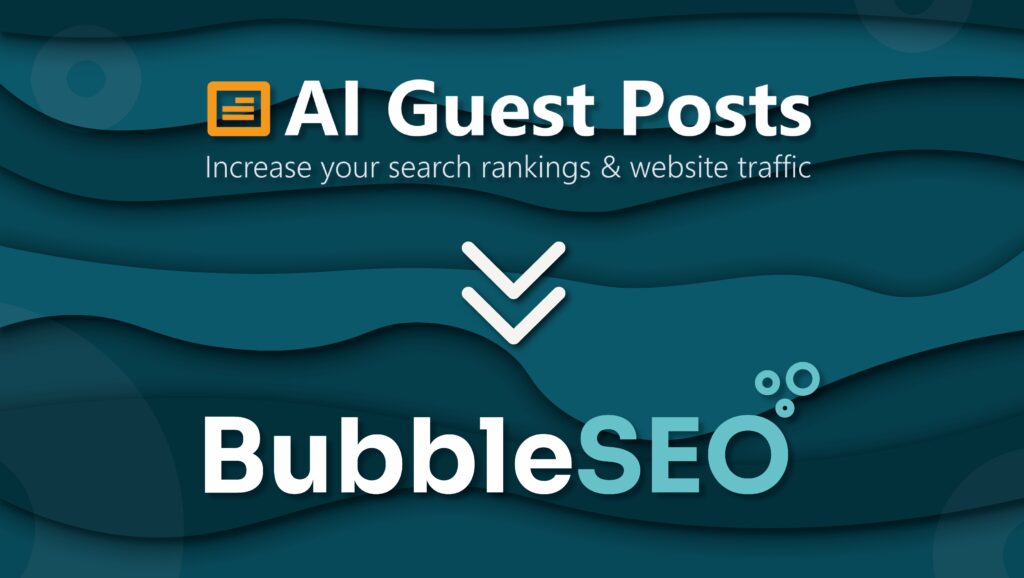
The benefits of guest posts involves strategic planning, communication, and building relationships

A content marketing plan is an important tool to help grow your business and increase sales.

A content marketing plan is an important tool to help grow your business and increase sales. Having an effective plan will ensure your approach to marketing is targeted, cost effective and driving that essential return on investment!
Product, place, price and promotion. Creating a content marketing plan will give you a strong basis to see how you are going to meet all of the ‘four P’s’ within your marketing. How will you promote and find a suitable place for your product, whilst reaching the appropriate audience? This asks questions like:
Having a plan set in place will help you to define your target market, and customers. By concentrating on what you are actually selling and how you are going to do this, it is a great way to gain understanding of your business and analyse what really puts you above others in the market. It will raise your awareness of other competitors and what you need to be successful. It is important to know the reason you are selling your product and in turn will make you more aware of your target market and what they are looking for when buying your product.
By gaining this understanding of your target market, you will be able to understand exactly what your buyers are looking for and therefore allow you to gain trust and develop loyalty with them. This can then have a positive influence on both sales and generating leads.
It can also help you to set targets and goals to make sure you are maintaining the key aim of the business. If you set goals and objectives, it is easy to track how you are going to make and maintain sales, aiming to hopefully increase these sales and then asses how close to your goal you are. This method is a great help to help you focus on which aspects of your business is working and what needs improvement. With the targets you set you can measure how your business is performing and see what aspects are working well or need more attention.
With a content marketing plan in place, it will ensure that everyone working on the marketing and sales of your business will be on the same page and working towards the same goals. Having set goals for each area of your business like product, place, price and ways in which you are promoting your business, means that no matter if it is just you working on it or a whole team of people there is set guidelines on the style of your work. It is effective as it is clear how the products translate through your website, shop (either physical or online) and social media.
Planning is essential in all business, and content marketing in no different. With the benefits listed above, getting the initial structure of your plan together first, will be a great start to your planning and guarantee you follow this as it could be crucial instigator in leading your business to success.
Grow your business online with content marketing solutions from Bubble SEO today.
Place An Order
This question comes up constantly, usually when someone is planning content and realises, they cannot do everything at once. Should you invest in articles that will still be useful in two years’ time, or focus on topics that are hot right now and hope they pay off quickly? Sadly, there is no neat answer. In practice, most SEO strategies fail not because the content type is wrong but because the balance is off. Evergreen Content: What It Is Evergreen content is supposed to last. It covers topics that people search for again and again, regardless of what is happening in the industry that week. Think practical guides, explanations, foundational SEO advice and content marketing principles. Not groundbreaking, but useful and consistent which keeps a page ranking. The reason evergreen content works so well is simple: it compounds. A post written today might not do much in its first month, but six months later it starts picking up links, impressions and clicks without you touching it. HubSpot’s broader data backs this up. Their collection of marketing statistics and trends repeatedly shows that older, well-maintained content continues to outperform newer posts over time. Google has been saying the same thing, just in a less direct way. Its guidance on people-first publishing in Google Search Central’s helpful content documentation is essentially a reminder that content should exist because it helps someone, not because you needed another URL. Trend-Led Content: Useful, But Short-lived Trend-led content is tempting: you see something change, everyone starts talking about it, and there is an opportunity to get visibility quickly. Algorithm updates, new tools, platform changes and seasonal shifts all fall into this category, but tools like Google Trends make it easier to spot rising topics. Furthermore, sites such as Search Engine Journal are often the first place marketers check when something changes. The problem is that trend-led content has a short shelf life so, if you publish late, or if your article does not add anything new, it disappears just as quickly as it arrived. This is usually why trend content doesn’t perform beyond a brief spike. However, trend-led content has real value if used properly as it shows awareness, relevance and it gives you content that can later support deeper, evergreen pages. Why Evergreen Content Carries Most SEO Strategies If you look at sites that perform well long term, evergreen content is doing most of the heavy lifting. These pages attract steady traffic because the searches never stop. The Ahrefs evergreen content glossary explains this clearly, and their data regularly shows that evergreen URLs bring in the highest cumulative traffic over time. Evergreen content also helps with authority, so when you thoroughly cover a topic, and link related content together, it becomes easier for search engines to understand what your site is about. For example, Moz’s Beginner’s Guide to SEO has remained relevant for years for exactly this reason. There is also the link-building side. Content that stays useful naturally becomes something people reference, and Backlinko’s breakdown of how SEO and content marketing work together highlights why evergreen resources attract links without constant outreach. Where Trend-Led Content Earns Its Place Trend-led content is not a replacement for evergreen content, but it plays a supporting role. When competition is low and interest is high, trend-based pages can rank quickly. They can earn early shares, mentions, and even links, particularly if you publish with a clear opinion rather than repeating headlines. These pages can also help reinforce topical relevance, where publishing around current changes send a signal that your site is active and up to date. Neil Patel’s guide to topical authority explains why this matters when content is properly connected. Engagement is another factor. Trend-led content often sparks discussion. For ongoing industry commentary, MarketingWeek’s digital marketing section is a good example of how timely content keeps audiences paying attention. And once the noise dies down, those pages often become useful places for contextual link insertions if the topic remains relevant. So Which One Performs Better? Neither, on its own. Evergreen content builds stability. Trend-led content creates movement. Sites that rely only on trends burn out quickly. Sites that publish only evergreen content often struggle to show relevance. The strongest results come from combining the two, which is why Semrush’s guide on what evergreen content is and how to create it focuses on integration rather than choosing sides. Making Both Work Together A sensible approach is to start with evergreen pillar pages. These should answer the core questions your audience keeps asking. Trend-led content, which then connects to those pillars, strengthen internal linking and stops trend content from becoming dead weight once interest drops. Evergreen pages also need attention. Content decays, even if the topic does not. Search Engine Journal’s piece on content decay and refresh strategies explains why updates matter more than constantly publishing new posts. Finally, pay attention to search behaviour. Trends often turn into evergreen topics if you catch them early enough. Where Most Businesses Should Focus For most businesses, evergreen content should carry more weight. A realistic split is around: 60 to 70 percent evergreen content 30 to 40 percent trend-led content Evergreen content builds long-term traffic and trust. Trend-led content keeps you visible and current. One without the other rarely works. Final Thoughts Evergreen and trend-led content are not competing ideas, they serve different purposes. If your strategy leans too far in either direction, performance usually suffers. However, when the balance is right, content becomes easier to maintain, easier to link and far more reliable over time. That is where most SEO strategies either succeed or quietly fall apart. Finding a balance is key, and the rest will follow.

Creating engaging and optimised content is crucial for driving traffic and achieving higher rankings on search engines.

In the fast-paced world of digital marketing, guest posting has emerged as a cornerstone strategy for increasing brand visibility, boosting SEO, and building valuable relationships. By contributing high-quality content to relevant blogs and websites, you can position yourself as an industry expert, attract new audiences, and earn authoritative backlinks. At Bubble SEO, we specialise in helping businesses harness the power of guest posting to maximize their online presence. Here, we delve into effective guest posting strategies to ensure you achieve the best results. 1. Research and Select the Right Platforms The success of guest posting depends largely on the quality and relevance of the websites you choose. Look for sites with: High domain authority (you can check this using tools like Ahrefs or Moz). An engaged audience that aligns with your target market. Strong editorial standards and consistent traffic. 2. Craft High-Quality, Value-Driven Content Content is king, but only if it serves your audience. Tailor each post to the platform’s readers, ensuring it provides actionable insights or solutions. Focus on: Addressing common pain points. Backing your points with credible data (from sources like Google Trends or Statista). Creating engaging headlines and clear, concise content. 3. Build Relationships with Editors and Publishers Establishing trust with site owners and editors is vital for successful guest posting. Personalise your outreach emails, highlighting why your content would add value to their platform. Tools like Hunter.io can help you find professional email addresses quickly. 4. Incorporate Strategic Backlinks While backlinks are a key benefit of guest posting, they should be used strategically. Link to high-quality, relevant resources, including your own website where appropriate. Avoid excessive self-promotion to maintain credibility with both readers and editors. At Bubble SEO, we specialise in building white-hat backlinks through effective guest posting strategies. Learn more here. 5. Promote Your Guest Posts Once your post goes live, amplify its reach by sharing it on your social channels, email newsletters, and website. This not only drives more traffic to the post but also demonstrates its value to the host website. 6. Monitor and Measure Results Track the performance of your guest posts to understand their impact on your marketing goals. Use tools like Google Analytics to measure referral traffic and audience engagement. Over time, refine your strategy based on what works best for your business. Why Guest Posting Works Guest posting is a cost-effective way to expand your reach and grow your business. It not only helps with search engine optimisation but also positions your brand as a thought leader. A well-executed guest posting strategy can yield long-term benefits, from increased website traffic to higher conversion rates. Guest posting done right can be a game-changer for your digital marketing efforts. If you’re ready to take your strategy to the next level, explore the services we offer at Bubble SEO. Our team of experts will help you secure placements on authoritative websites, create compelling content, and achieve measurable results. Boost your reach today with Bubble SEO—because your brand deserves the spotlight!

In the ever-evolving landscape of SEO, guest posting remains a key strategy for building backlinks, driving traffic, and enhancing brand visibility.

Would you like to write the most engaging and gripping content? As the internet grows, it seems so does the amount of competition. We are all looking for ways to stand out from the rest of the internet and grab the attention of our desired audience. Although it is not the easiest task to achieve great, quality content, it will be the best way to grab the right attention! With the growth of the internet and accessible online sources, this can be used to our advantage and help find ways to use and implement features into own our content. Quality is not about how many posts are shared, but the characteristics and style of your content.

We're excited to announce that AI Guest Posts has undergone a transformative rebranding and is now known as Bubble SEO. This strategic move has allowed the business to develop within the digital landscape and highlight our commitment to providing digital marketing solutions tailored to enhance online visibility and engagement for our customers. Bubble SEO remains dedicated to delivering high-quality, targeted content and effective SEO solutions that align with evolving digital marketing trends. Here is a little more information about our brand and its services. Our services: At Bubble SEO, we specialise in three core services, with content writing being a new feature to the website: Guest Posting: Which aims to enhance your online presence with high-quality guest posts on authoritative websites, driving traffic and boosting your SEO rankings. Link Building: Helps build a robust backlink profile with strategic link building services that improve your website's authority and visibility. Content Writing: Provides engaging content for your audience with compelling content tailored to your brand voice and SEO needs. Benefits of Bubble SEO: We have now made changes to the booking process to simplify this, and updated the customer dashboard section in the hope to improve our existing values below: Enhanced Service Quality: With our rebranding comes a renewed focus on delivering top-notch services that exceed your expectations. Improved User Experience: Our new website offers a streamlined interface, making it easier for you to navigate and access our services. Expanded Network: Benefit from our expanded network of partner websites, ensuring broader outreach and better opportunities for your business. Loyalty Rewards: As a token of our appreciation for the continued support of our bookers, we have now introduced loyalty rewards: Exclusive Discounts: Enjoy special discounts as a loyal Bubble SEO customer, with the more points you acquire, the more exciting offers you will unlock. We're thrilled about this new chapter as Bubble SEO and look forward to continuing to be your trusted partner in achieving your digital marketing goals. Stay tuned for more exciting updates and announcements! Discover the new Bubble SEO and elevate your online presence today! Jennifer Hobson – Digital Marketing [email protected] Heather Ryan – Business Development [email protected]

In the ever-evolving world of digital marketing, content remains king, but how we approach content creation and distribution continues to change. One of the most effective strategies for brands today is combining the power of guest posting services with content diversification. This approach not only helps in building authority but also ensures your brand message reaches a wider audience across different content formats. Guest Posting: A Proven Strategy for Authority and Reach Guest posting is one of the most reliable methods for building authority in your niche and increasing organic traffic. When you publish high-quality content on established websites, you gain exposure to an audience already interested in your topic. Moreover, this kind of collaboration leads to valuable backlinks, enhancing your website's domain authority and improving its ranking in search engines like Google. Platforms like AI Guest Posts offer a streamlined way to find opportunities for guest blogging on relevant, high-authority sites. Leveraging such services helps save time and ensures that your guest posts are placed on websites that align well with your target audience and industry. For an impactful guest posting campaign, it's important to go beyond traditional blogs and text-based content. This is where content diversification comes into play. Content Diversification: Why It’s Essential for Guest Posting Success In 2024, audiences expect more than just well-written articles. Content diversification means offering information in a variety of formats—such as infographics, videos, podcasts, interactive quizzes, and more. By diversifying your content, you engage a broader audience and cater to different preferences, which ultimately helps boost the effectiveness of your guest posting services. 1. Reaching a Wider Audience Different people prefer different types of content. While some prefer reading long-form blog posts, others are more inclined to watch a quick video or listen to a podcast during their commute. By diversifying your guest post contributions beyond articles—such as embedding explainer videos or podcast snippets—you attract a more varied audience. For instance, visual content such as infographics is highly shareable and can make complex information more digestible. Sites like Canva provide tools to create eye-catching infographics that can be embedded within guest posts, adding more value for readers. 2. Improving Engagement and SEO Performance Diversified content tends to perform better in terms of SEO. Google favours websites that offer a rich variety of content types, indicating an effort to provide a holistic and engaging user experience. Including videos and audio clips in your guest posts can help you rank for video searches, drive more engagement, and reduce bounce rates. Studies show that pages with videos tend to have a higher average time-on-page, signalling quality to search engines. 3. Enhancing Social Shares Diversified guest posts are also more likely to be shared on social media. Visual content and short video clips are inherently more shareable than long text articles. To encourage social media distribution, it's wise to include interactive elements like quizzes or short polls that encourage readers to share their results. Tools like BuzzSumo can help identify the types of content that perform well on social platforms, informing your diversification strategy. How to Diversify Your Guest Posts Effectively If you want your guest posting strategy to succeed in 2024, it's crucial to take an integrated approach. Here are some tips to get started: 1. Incorporate Multimedia Elements When submitting guest posts, consider including a mix of multimedia elements. Whether it’s a quick infographic or an embedded video, these elements can help make your post stand out. A simple guide to creating these visuals is available on Visme, which offers resources for designing professional-quality graphics without advanced skills. 2. Offer Podcast Collaborations Instead of only contributing written content, offer to collaborate on a podcast episode for the host website. Platforms like Anchor make it easy to create and share podcasts. Podcasting helps you reach audiences that prefer listening over reading, and it adds a personal touch to your brand voice. 3. Tailor Content for Different Audiences Adapt your content for the website where you are guest posting. For example, if you’re targeting a site with a younger audience, consider a TikTok-style video or a visually rich infographic. Conversely, for a professional B2B audience, you may want to include detailed graphs and statistical analysis, which you can create using tools like Datawrapper. 4. Why Choose AI Guest Posts for Your Guest Blogging Needs? As digital marketers, time is always of the essence, and finding the right websites for guest posting can be challenging. AI Guest Posts offers a solution by connecting you with high-authority platforms that align with your brand. They help you navigate the guest posting process, ensuring that your content—whether it's a blog post, infographic, or video—lands in front of the right audience. By collaborating with a reliable guest posting service, you get access to quality backlinks that boost your SEO and bring more organic traffic to your website. Diversifying your content while guest posting helps you gain more engagement, improve your SEO metrics, and enhance your brand’s overall authority. Conclusion: Embrace Guest Posting and Diversify Your Content The combination of guest posting and content diversification is a powerful way to grow your online presence in 2024. Guest posts help establish your authority, while diverse content formats ensure that your brand appeals to a broader audience. Platforms like AI Guest Posts make it easy to find the right guest blogging opportunities, allowing you to focus on what really matters—creating high-quality, diverse content that resonates with your audience. Whether you're looking to improve your search engine rankings, gain exposure, or reach new audiences, integrating content diversification with guest posting services is the key to standing out in the competitive digital landscape of 2024.